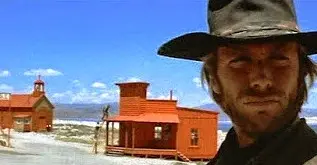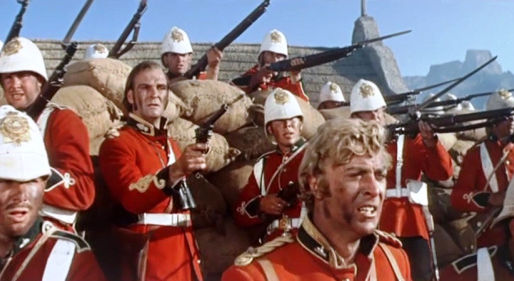top of page
Search
Film Reviews
Reviews of films from 1930's through to 1999.


Kelly's Heroes (1970)
Released in 1970, Kelly’s Heroes stands as one of the most peculiar and entertaining war films ever made—a mash-up of gritty World War II action, heist movie caper, anti-authoritarian satire, and irreverent comedy. Directed by Brian G. Hutton, who previously helmed the more traditional WWII thriller Where Eagles Dare (1968), Kelly’s Heroes offers a tonal shift from straightforward valour to something far more subversive and eccentric.

Soames Inscker
5 min read


Don't Look Now (1973)
Nicolas Roeg’s Don’t Look Now (1973) is a film that defies easy categorization. Ostensibly a supernatural thriller or horror story, it is, at its core, a harrowing meditation on grief, trauma, and the instability of perception.

Soames Inscker
5 min read


Scarecrow (1973)
In the pantheon of 1970s American film—a decade dominated by gritty realism, moral ambiguity, and character-driven storytelling—Scarecrow (1973) stands as one of its most understated, poignant, and sadly overlooked works.

Soames Inscker
4 min read


Bonnie and Clyde (1967)
When Bonnie and Clyde premiered in 1967, it detonated a cultural and cinematic explosion whose shockwaves still reverberate. It wasn’t merely a film about Depression-era outlaws—it was a defiant cry from a generation eager to dismantle Hollywood’s golden-age conventions. Violent, stylish, erotic, and subversively funny, Bonnie and Clyde was both a thrilling crime saga and a radical turning point in American cinema.

Soames Inscker
5 min read


High Plains Drifter (1973)
High Plains Drifter is Clint Eastwood’s second directorial feature, following Play Misty for Me (1971), and it is arguably one of his boldest early works. On the surface, it is a revenge Western in the tradition of Sergio Leone’s spaghetti Westerns, but it quickly reveals itself to be something darker, stranger, and more allegorical.

Soames Inscker
4 min read


The Conversation (1974)
Francis Ford Coppola’s The Conversation is a taut, cerebral thriller that explores the intersection of surveillance, privacy, guilt, and paranoia in post-Watergate America. Released between Coppola’s two Godfather films, this small, character-driven movie is a masterclass in restraint and psychological tension.

Soames Inscker
4 min read


Star Trek III: The Search for Spock (1984)
Star Trek III: The Search for Spock is a transitional chapter in the original Star Trek film series—a direct sequel to The Wrath of Khan (1982) and the bridge to The Voyage Home (1986). Directed by Leonard Nimoy, marking his debut behind the camera, the film continues the saga with a more introspective tone, focusing on themes of friendship, sacrifice, rebirth, and the consequences of technological ambition.

Soames Inscker
5 min read


Superman III (1983)
Superman III is the third entry in the original Superman film series, and by far the most divisive. Released in 1983 and directed solely by Richard Lester—who had completed the second film after Richard Donner's departure—it steers sharply into comedic territory, diluting the mythic and emotional tone of the earlier films in favour of slapstick, satire, and an awkward tech-paranoia subplot.

Soames Inscker
5 min read


Tron (1982)
Tron (1982) is a visually ground-breaking science fiction film that transported audiences inside a computer system unlike anything seen before on screen. Though it was met with modest box office success and mixed reviews upon release, its reputation has only grown over time, recognized today as a cult classic and one of the most influential entries in the cyberpunk and digital fantasy subgenres.

Soames Inscker
5 min read


Superman 2 (1980)
Superman II is widely regarded as one of the finest superhero films of the pre-Batman (1989) era and a landmark in the evolution of comic book adaptations. Serving as a direct sequel to Richard Donner’s Superman: The Movie (1978), this follow-up deepens the emotional core of its predecessor while raising the stakes with new antagonists—General Zod and his fellow Kryptonian criminals.

Soames Inscker
5 min read


Loguns Run (1976)
Logan’s Run (1976) is a landmark of 1970s science fiction cinema—an ambitious, visually inventive, and thematically rich dystopian adventure. Released a year before Star Wars, it arrived at the tail end of an era when sci-fi was used not to thrill with action, but to provoke thought. Set in a future society where youth is preserved and death comes by design at the age of 30, Logan’s Run explores hedonism, social control, and the search for authenticity in a sterile, controlle

Soames Inscker
5 min read


The Omega Man (1971)
The Omega Man (1971) is the second and perhaps most culturally emblematic adaptation of Richard Matheson’s influential novel I Am Legend. Starring Charlton Heston at the peak of his post-Planet of the Apes career, the film blends dystopian science fiction, action thriller, Cold War paranoia, and a touch of countercultural sentiment.

Soames Inscker
5 min read


Barbarella (1968)
Barbarella (1968) is a psychedelic, erotic, and often absurd space opera that defies traditional cinematic classification. Directed by Roger Vadim and starring Jane Fonda in one of her most iconic and polarizing roles, the film adapts Jean-Claude Forest’s French comic strip into a freewheeling, surreal exploration of science fiction, sexual liberation, and pop-art aesthetics.

Soames Inscker
5 min read


The Time Machine (1960)
George Pal’s The Time Machine (1960) is a landmark in cinematic science fiction and one of the most enduring film adaptations of H.G. Wells’ literature. With its elegant blending of philosophical inquiry, imaginative visuals, and Cold War–era anxieties, this adaptation reimagines Wells’ 1895 novella as both a thrilling time-travel adventure and a contemplative warning about humanity’s future.

Soames Inscker
4 min read


The War of the Worlds (1953)
Paramount’s The War of the Worlds (1953) is a landmark in mid-century science fiction cinema. Loosely adapted from H.G. Wells’ seminal 1898 novel, this Cold War-era interpretation directed by Byron Haskin and produced by George Pal reinvents the classic alien invasion narrative for a post-WWII American audience.

Soames Inscker
4 min read


Flash Gordon (1936)
Flash Gordon (1936), directed by Frederick Stephani and produced by Henry MacRae, stands as one of the most iconic science fiction serials in film history. Based on Alex Raymond’s comic strip, the 13-chapter Universal serial starred Buster Crabbe as Flash Gordon, Jean Rogers as Dale Arden, Frank Shannon as Dr. Hans Zarkov, and Charles Middleton as the sinister Emperor Ming the Merciless.

Soames Inscker
3 min read


Star Trek II: The Wrath of Khan (1982)
Star Trek II: The Wrath of Khan is not just a landmark within the Star Trek franchise—it is widely considered one of the greatest science fiction films of all time. Released in 1982, this second instalment in the film series resurrected the waning cinematic fortunes of Star Trek after the lukewarm reception of Star Trek: The Motion Picture (1979).

Soames Inscker
5 min read


Zulu (1964)
Zulu (1964) stands as one of the most iconic British war films ever made. Based on the real-life 1879 Battle of Rorke’s Drift during the Anglo-Zulu War, the film dramatizes the desperate defense of a remote mission station by a small contingent of British soldiers against thousands of Zulu warriors. Directed by American expatriate Cy Endfield and produced by its star, Stanley Baker, Zulu is an enthralling combination of widescreen spectacle, military drama, and character stud

Soames Inscker
5 min read


Von Ryan's Express (1965)
Von Ryan’s Express (1965) is a taut, thrilling, and occasionally unconventional World War II adventure film that combines the high-stakes tension of a prisoner-of-war drama with the pulse-pounding spectacle of a heist-like escape. Directed by Mark Robson and starring Frank Sinatra at the height of his cinematic charisma, the film rides a narrow but effective track between traditional war movie conventions and a more modern, morally ambiguous hero narrative.

Soames Inscker
5 min read


The Heartbreak Kid (1972)
The Heartbreak Kid (1972) is a landmark of American dark comedy, a film that balances pathos and satire with unnerving precision. Directed by Elaine May and written by Neil Simon—adapting Bruce Jay Friedman’s short story “A Change of Plan”—this is not your average romantic comedy.

Soames Inscker
5 min read
bottom of page


